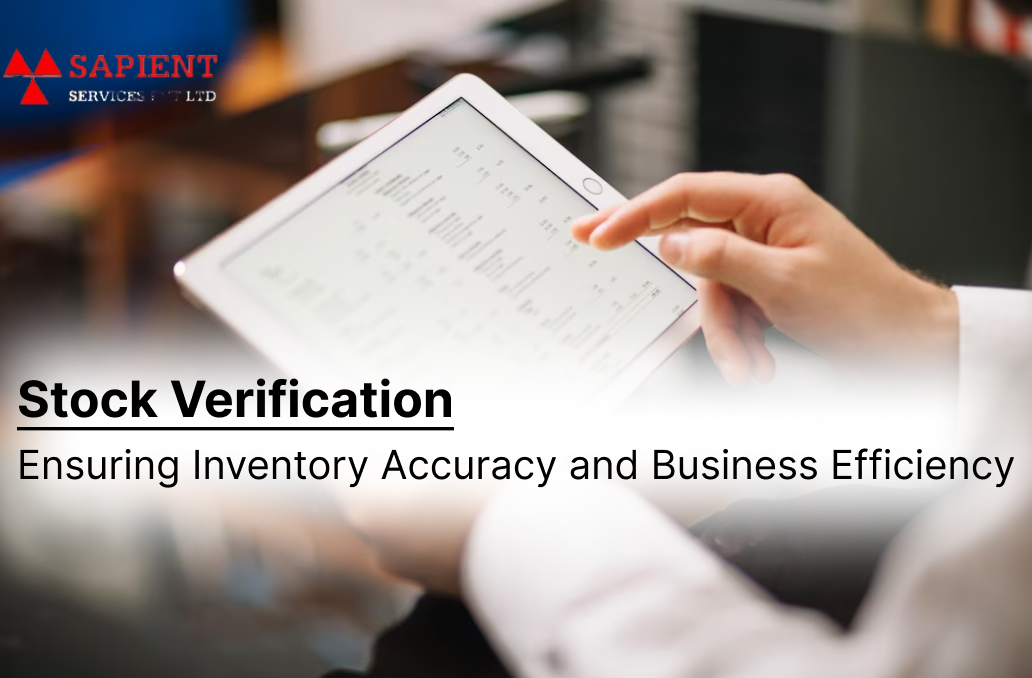
Overview of Stock Verification
When an individual inaugurates his business in any sector, he has a certain mission as well as a vision towards which he works. Operating a business is not as easy as cutting a cake, it requires commitment, passion, experience and hard work with smart work. A successful business is the result of various factors involving business relationships with their employees, clients, stakeholders, and the vendors, business employees and their commitment as well as professionalism towards the organization. Whereas, the businessman’s perception for his business is shaped by a combination of personal values, business goals, and the overall environment in which the business is operated. However there are various tangible and intangible factors that influence the businessman’s perception towards his business and that covers financial success, Customer Satisfaction, Innovation and Adaptability, employment engagement, Marktposition and the competition, ethical practices, and the corporate social responsibility. However a successful businessman strives for a balanced and holistic perspective that considers various aspects of their business. Businesses mostly operate their functions by themselves but sometimes they need an external firm that helps them to complete some particular task. They generally hire external teams for specialized expertise, gain efficiency, and to focus on their core competencies. Some reasons for which businesses usually hire the external teams include Advertising and Marketing, Legal Services, Stock Verification, Market Research and Consulting, and for Event Management.
Today with this blog we will talk about businesses, Stock Verification, and the benefits of Stock Verification.
A Business
Business is an entity that is engaged in commercial, industrial and professional activities with the primary goal of earning profits. A business is a dynamic entity that operates in a larger economic framework, aiming to provide value to the customers, generate profits, and contribute to economic development. Business can take various forms including Sole proprietorship, partnership, Corporation and other legal structures.
The key characteristics of a business involves –
-
Profit Motive
-
Goods and services
-
Customers
-
Ownership structure
-
Risk and Reward
-
Innovation and Adaptation
-
Financial management
-
Market Presence
A business is operated through a series of interconnected processes and functions. Functions and operations of any business depends on the industry of the business. But some common steps include Planning, Organizing, Staffing, Directing, Marketing and Sales, Financial Management, Monitoring and Evaluation and the Continuous Improvement.
What is Stock
Stock are the inventory goods and materials that a company holds for the purpose of resale or use in its operations. Stock can include raw material, work in progress and the finished goods. It represents the tangible assets that a business owns and intends to sell as parts of its normal business activity.
The main categories of stock includes the raw material, Work in progress and the Finished goods. There are various methods available that are used to track the flow of stock and determine the value of inventory for accounting purposes and that covers First – in, First – out (FIFO), or the Last – in, first – out (LIFO).
Accurate tracking and management of stock is necessary for the financial reporting, ensuring customer satisfaction, and optimizing the overall operational efficiency.
What is Verification
In general, Verification is the process of checking or confirming the accuracy, validity or truthfulness of something. Verification is the fundamental step in various contexts including business, research l, technology, and everyday communication.
It involves a systematic examination or investigation to ensure that a statement, claim or a piece of information is correct or reliable.
Verification is applied in numerous areas including Document Verification, Identify Verification, Financial Verification, Data Verification, Fact Checking, Verification in Research and Software Verification.
Verification is the critical component of responsible decision making and contributes to the credibility and the reliability of various systems and activities.
Stock Verification
Stock Verification can be also called Stock Audit and the Inventory Audit. It is a process of physically counting, inspecting and reconciling the actual quantities of goods and materials in a company’s inventory with the recorded quantities in its books or electronic records.
The main purpose of Stock Verification is to ensure the accuracy, And the reliability of the inventory records, identify any discrepancies and maintain effective control over the stock.
The Stock Verification process involves some steps that covers –
-
Planning
A plan is developed before conducting the stock Verification to outline the scope, objectives, and the methods to be used.
-
Preparation
The team responsible for the stock Verification is assembled and all the resources such as counting equipment and the documentation tools.
-
Physical Counting
The team physically counts the actual quantities of goods in stock. This may involve counting items in shelves, warehouses or in the production area.
-
Recording
As items are counted, the counts are recorded in the verification documentation. This may involve using handheld devices, paper records or digital systems.
-
Verification of Documents
The team compares the recorded quantities from the physical count with the quantities recorded in the inventory records.
-
Reporting
A detailed report is prepared summarizing the findings of the Stock Verification process. This report includes information on discrepancies, their causes and the recommendations for improvement.
-
Follow-up Actions
Based on the recommendations on the report,
The company may implement changes to its inventory management practices to prevent future discrepancies.
Benefits of Stock Verification
Stock Verification is a proactive and essential practice that yields numerous benefits for a business and this includes-
-
Accurate Financial Reporting
-
Prevention of threat and fraud
-
Optimized Inventory levels
-
Customer Satisfaction
-
Cost control
-
Efficient Resource Allocation
-
Enhanced Decision making
-
Facilitation of Audits
-
Building trust with Stakeholders
-
Risk Mitigation
The benefits of Stock Verification contribute to the overall success and sustainability of an organization.
Ending this blog here, hoping this topic of Stock Verification has cleared you.


